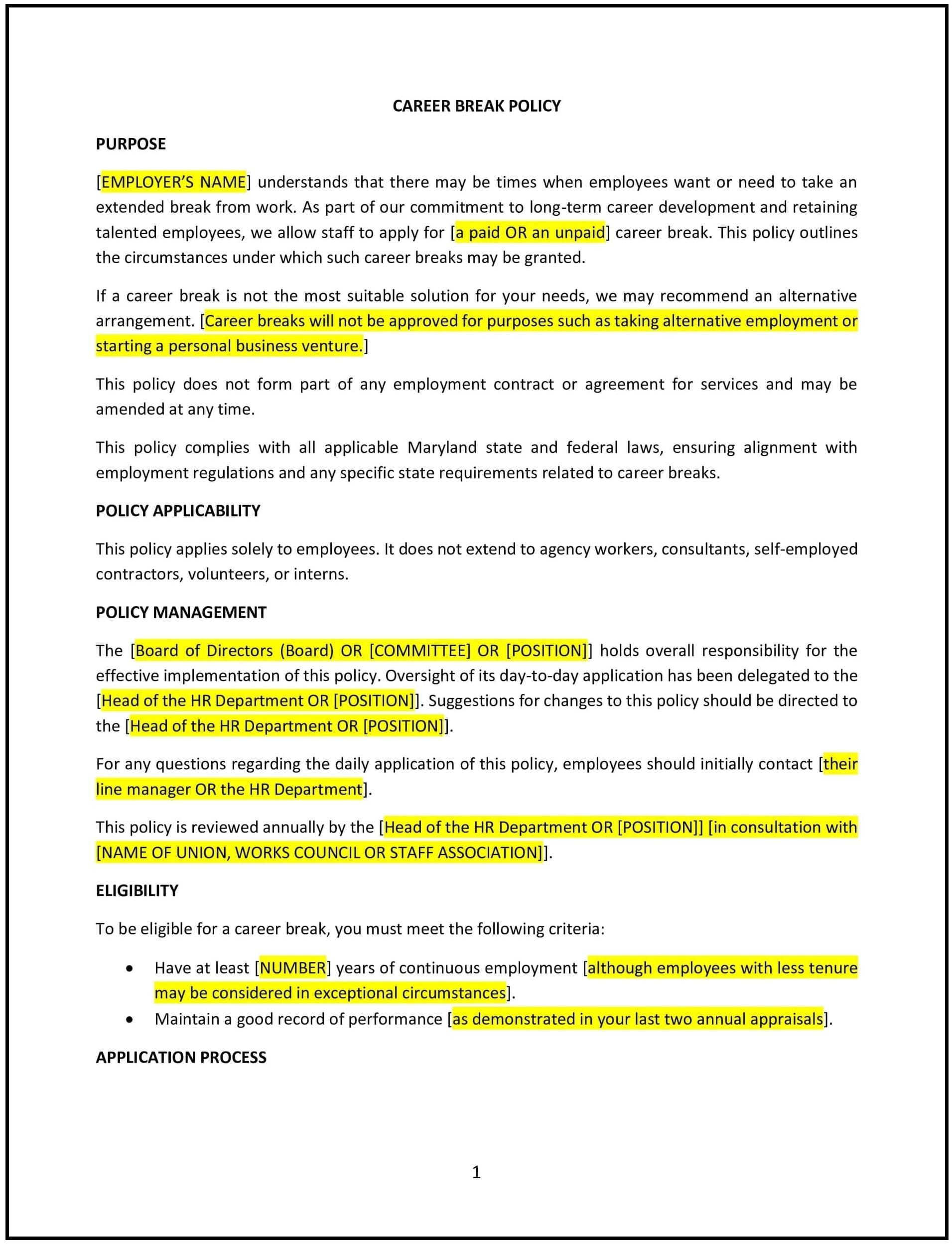Got contracts to review? While you're here for policies, let Cobrief make contract review effortless—start your free review now.

Customize this template for free
Career break policy (Maryland)
This career break policy is designed to help Maryland businesses support employees seeking extended time away from work for personal growth, family responsibilities, or other life priorities. It establishes clear guidelines for requesting, approving, and managing career breaks while balancing the needs of the business.
By adopting this policy, Maryland businesses can foster loyalty, enhance employee well-being, and promote a positive workplace culture.
How to use this career break policy (Maryland)
- Define eligibility: Specify which employees qualify for a career break, such as those with a minimum length of service or in good standing.
- Outline acceptable reasons: Provide examples of valid reasons for a career break, such as pursuing education, caregiving, or travel.
- Describe the application process: Detail how employees can request a career break, including notice periods, application forms, and supporting documentation.
- Clarify duration limits: Set boundaries for the length of career breaks, such as a minimum of three months and a maximum of one year.
- Establish job protection: Indicate whether the employee’s position or a similar role will be available upon their return, subject to operational needs.
- Detail benefits during the break: Specify what happens to benefits such as health insurance, retirement contributions, or accrued leave during the career break.
- Provide a re-entry process: Outline steps for reintegrating employees, including any required training or updated role expectations.
- Address Maryland-specific considerations: Reflect Maryland labor laws and employment practices in how career breaks are managed.
Benefits of using this career break policy (Maryland)
Implementing this policy offers Maryland businesses several advantages:
- Boosts employee morale: Demonstrates a commitment to supporting employees’ personal and professional growth.
- Improves retention: Encourages long-term loyalty by offering employees flexibility during key life stages.
- Enhances recruitment: Attracts top talent by showcasing a progressive approach to work-life balance.
- Supports workforce planning: Provides a structured framework to manage career breaks without disrupting operations.
- Aligns with workplace culture: Promotes a supportive and forward-thinking organizational environment.
Tips for using this career break policy (Maryland)
- Communicate clearly: Share the policy with employees during onboarding and make it easily accessible in handbooks or intranet portals.
- Plan ahead: Encourage employees to provide ample notice to minimize disruptions and enable effective workforce planning.
- Consider flexibility: Be open to adjusting career break durations or conditions based on individual circumstances.
- Review operational needs: Assess the impact of career breaks on staffing and workloads to ensure smooth transitions.
- Stay informed: Regularly evaluate Maryland employment trends and practices to keep the policy relevant.